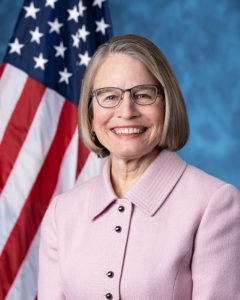The men and women who serve in our military deserve our respect, admiration, and gratitude. As a veteran and member of the House Veterans’ Affairs Committee, I can think of no better way to help those transitioning from our military than by giving them access to the benefits they have earned.
Earlier this month, the House passed four pieces of legislation I introduced to help our veterans. Each of these pieces of legislation is a commonsense solution to help our veterans live better lives.
The VET TEC Enhancement Act, which I introduced with Congressman Kai Kahele (D-Hawai’i), an Air Force veteran, would increase funding for the VA’s Veteran Employment Through Technical Education Course, a five-year pilot program that allows eligible veterans to use G.I. Bill-style benefits to attend innovative job training programs to prepare them for future employment in the technology industry.
This program ensures that our veterans have the tools they need to gain meaningful employment. To date, over 1,800 veterans have completed the VET TEC program and found well-paying jobs, with an average salary of over $50,000 per year. I have spoken to veterans’ groups from Ottumwa to Davenport and there is overwhelming support for this commonsense program. This is a highly successful avenue to assist veterans reentering the civilian workforce.
Helping our veterans maximize their education benefits is one of my top priorities. This is why I partnered with Congresswoman Mikie Sherrill (D-New Jersey), a Navy veteran, to introduce the GI Bill NEED Act and the VR&E NEED Act. Each of these bills would allow veterans to pause the time limit on their educational benefits in the case of a national emergency or other crisis.
Over the past year, we have seen the COVID-19 public health emergency force universities and colleges across the country to temporarily close their doors. By pausing the timer on their benefits when programs are closed, we preserve the opportunities veterans have earned through their service to our country. Our veterans sacrificed so much, so now it is our turn to serve them.
Finally, and most importantly, we must be doing more to help our veterans access the mental health services they need. I proudly joined Congresswomen Cindy Axne (D-Iowa) and Ashley Hinson (R-Iowa) and Congressman Randy Feenstra (R-Iowa) to introduce the Sgt. Ketchum Rural Veterans’ Mental Health Act, named for Sergeant Brandon Ketchum of Davenport, who died by suicide in 2016 after being denied service at the VA facility in Iowa City.
This bipartisan legislation would establish new Rural Access Network for Growth Enhancement programs through the VA and support additional research on rural veteran mental healthcare needs. In addition to establishing three new veteran mental health programs, the legislation will direct a study on how the VA can improve mental healthcare for rural veterans to enable better outcomes for veterans like Sgt. Ketchum.
As a 24-year Army veteran, I understand the sacrifices our veterans have made in service to our country. By passing legislation to support their transition back to civilian life and to give them access to much-needed mental health and job training services, we are taking an excellent toward helping our heroes.

Rep. Miller-Meeks Official Photo
Mariannette Miller-Meeks, a resident of Ottumwa, is a retired Lt. Colonel who served 24-years in the United States Army and represents Iowa’s Second District in the United States House of Representatives.



